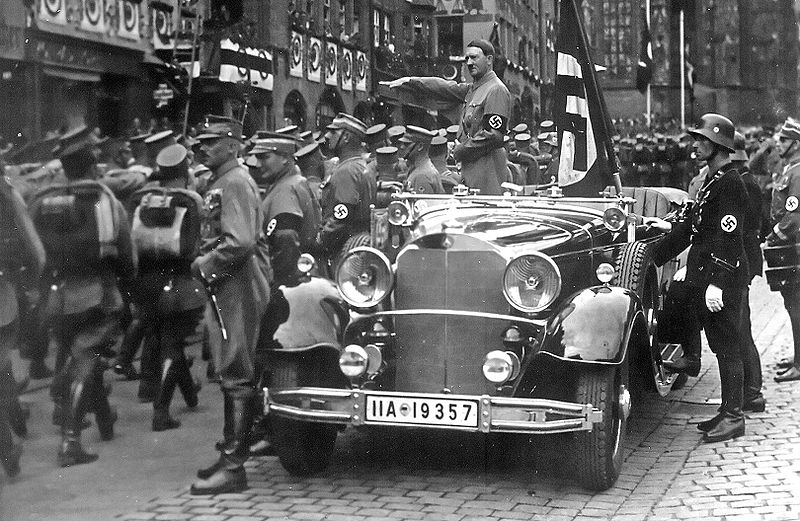


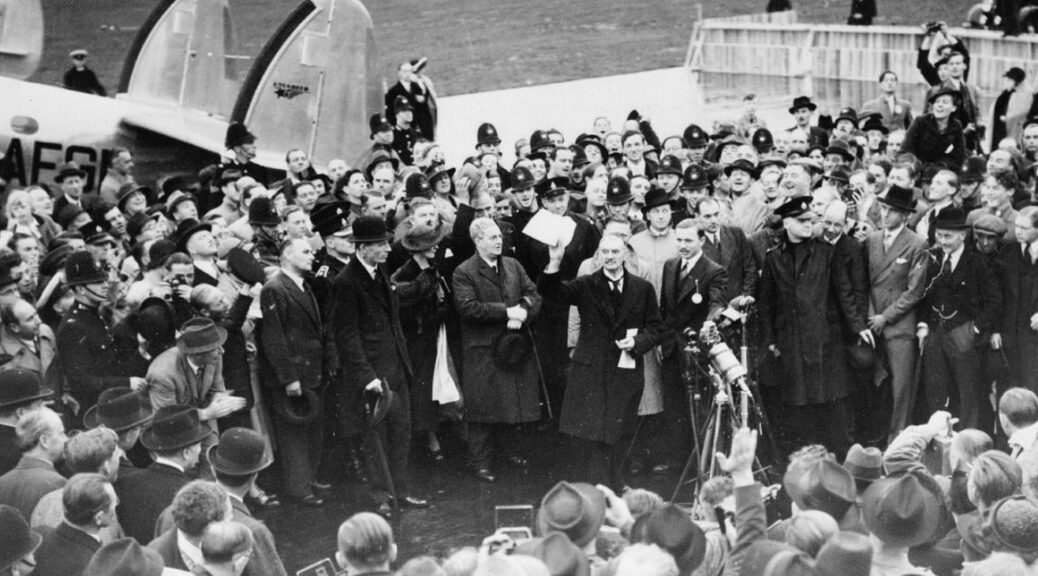
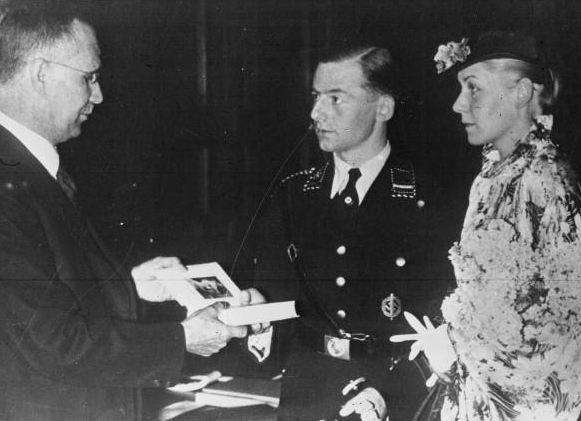
When did Churchill first read Mein Kampf, and did he have any early reaction to it?” Of Mein Kampf in his war memoirs, he wroe:
…there was no book which deserved more careful study from the rulers, political and military, of the Allied Powers. All was there—the programme of German resurrection, the technique of party propaganda; the plan for combating Marxism; the concept of a National-Socialist State; the rightful position of Germany at the summit of the world. Here was the new Koran of faith and war: turgid, verbose, shapeless, but pregnant with its message.[1]…
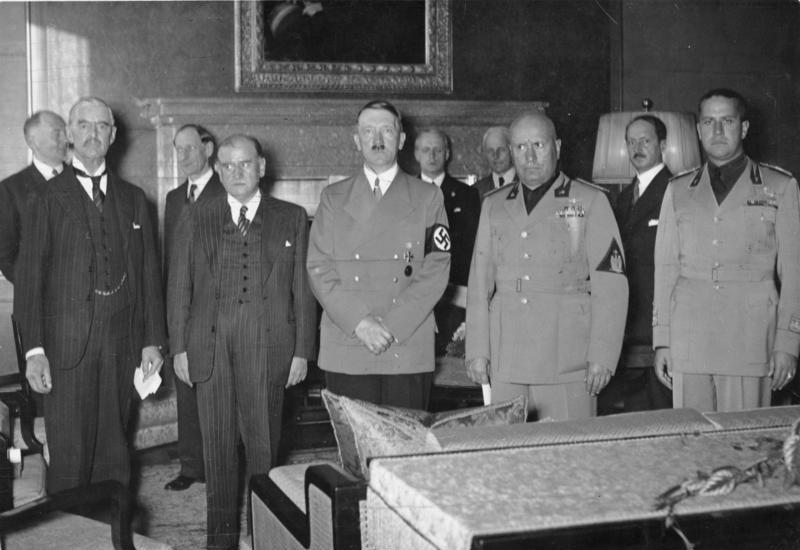
Journalist Leo McKinstry’s Churchill and Attlee is a deft analysis of a political odd couple who led Britain’s Second World War coalition government. Now, eighty years since the death of Neville Chamberlain, he has published an excellent appraisal in The Spectator. Churchill’s predecessor as Prime Minister, Chamberlain negotiated the 1938 Munich agreement. “Peace for our time,” he famously referred to it. In the end, he bought the world peace for a time.
Mr. McKinstry is right to regret that Chamberlain has been roughly handled by history. “The reality is that in the late 1930s Chamberlain’s approach was a rational one,” he writes.…
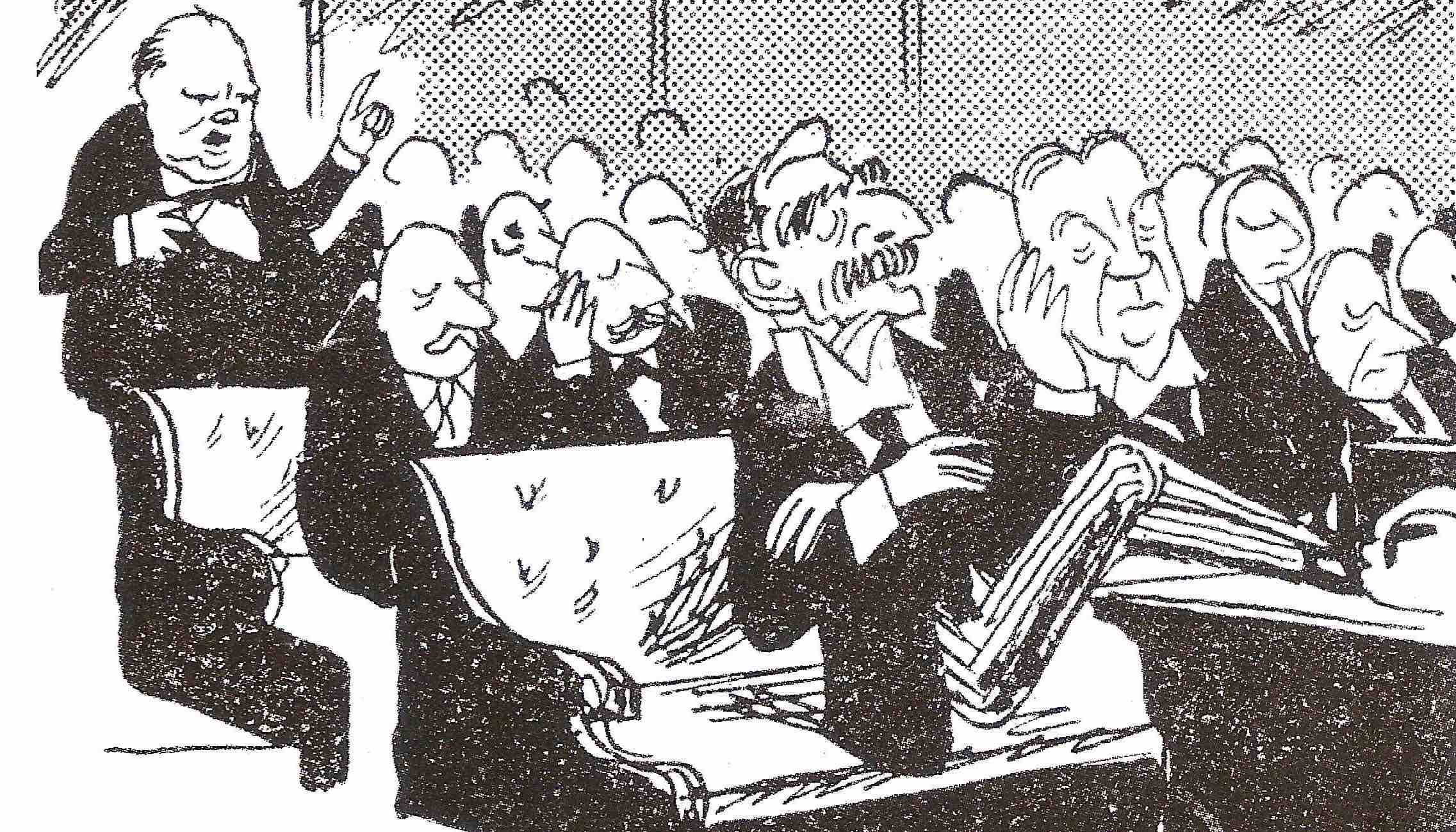
“Fascists of the future” appears unabridged in the Hillsdale College Churchill Project, July 2020. For the complete text, please click here. Subscribe free to the Churchill Project and join our 60,000 readers. Regular notices of new posts appear as they are published. Simply click here, scroll to bottom, and fill in your email in the box entitled “Stay in touch with us.” Your email is never shared with anyone.
Question“Is this quotation is attributed to Winston Churchill?: ‘The fascists of the future will call themselves anti-fascists.’ There does not seem to be credible information on the internet linking those words to him, but I would appreciate your input.”…
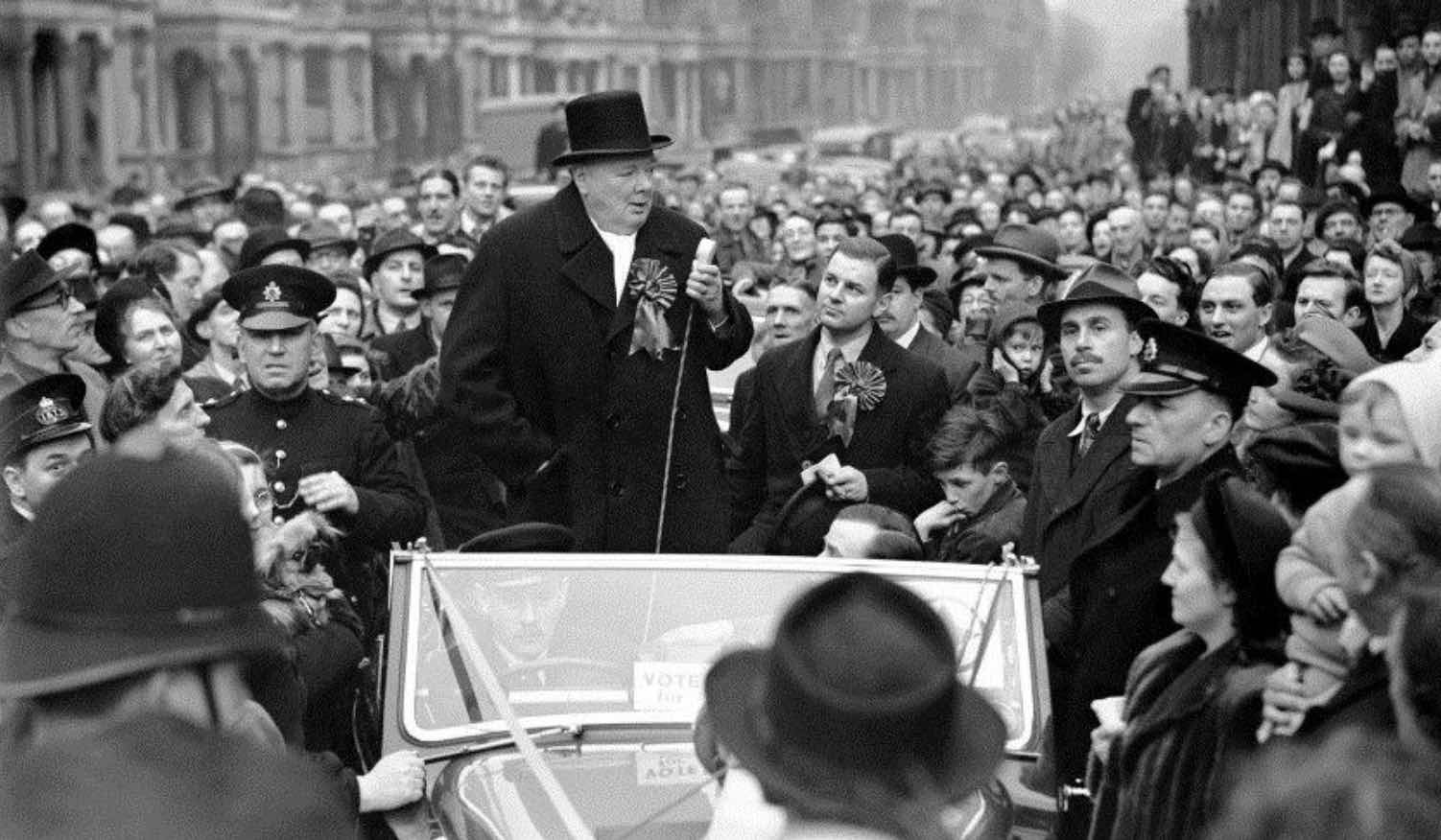
Sporadically, pundits compare Donald Trump with Winston Churchill. There’s even a book coming out on the subject. I deprecate all this by instinct and will avoid that book like the Coronavirus. Surface similarities may exist: both said or say mainly what they thought or think, unfiltered by polls (and sometimes good advice). But Churchill’s language and thought were on a higher plane. Still, when a friend said that Churchill never stooped to derisive nicknames like Trump, I had to disagree.
Whether invented by the President or his scriptwriters, some of Trump’s nicknames were very effective.…
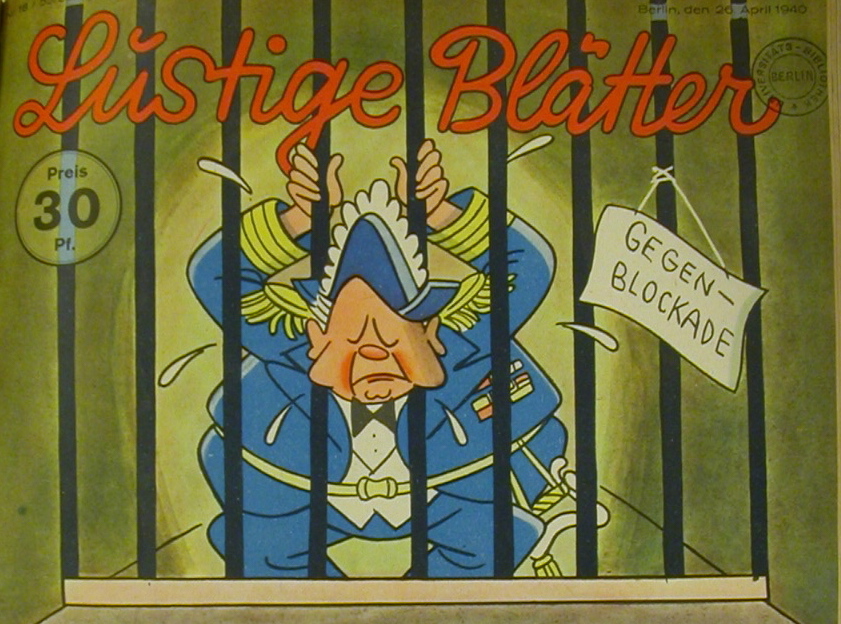
In our electronic Speaker’s Corner (the Internet), Winston Churchill is beset by haters. Their knee-jerk spouts are laced with out-of-context quotes and preconceived notions. Call it Churchill Derangement Syndrome. Where is the truth? Perhaps we need a Derangement Index. Click on “A” for Aryan Supremacy, “B” for the Bengal Famine, etc. A handy reference to every derangement you can access with a couple of clicks.
An e-zine called This is Local London, describing its offerings as “quality local journalism,” is a standard example. Well, maybe not so standard. “The Problem with Glorying Winston Churchill” was written not by a historian or researcher, but a student at Wallington County Grammar School.…
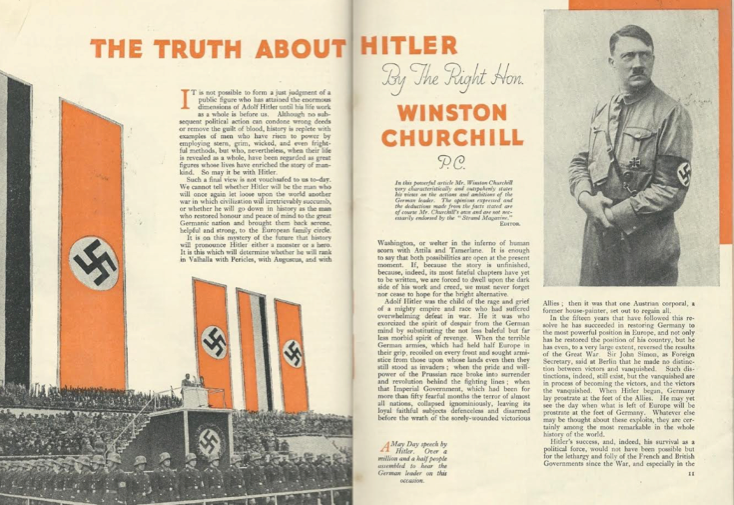
Part 5 of Winston Churchill, Myth and Reality examines multiplying fables between the two World Wars. Churchill was an alcoholic, we are often assured. He flip-flopped over Bolshevism. All Jews were communists, he said. He despised Gandhi. A closet fascist, he supported Mussolini. But one tall tale perhaps eclipses all the others. It is the idea that Churchill admired Hitler. Remarks to the Churchill Society of Tennessee, Nashville, 14 October 2017. Continued from Part 4…
Judging HitlerIt is important to understand just how right Churchill was about Hitler. In May 1935 the Führer wrote a revealing letter to the British newspaper magnate Esmond Harmsworth, Lord Rothermere, one of his promoters.…
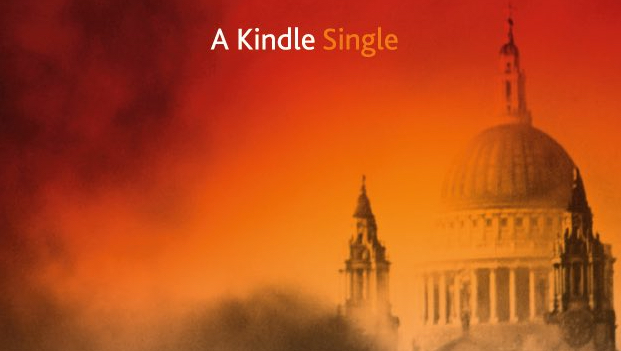
The question arises, has anything been written on Churchill’s radio technique? Did he treat radio differently from other kinds of public speaking? How quickly did he take to the broadcast?
“The Art of the Microphone”An excellent piece on this subject was by Richard Dimbleby (1913-1965), the BBC’s first war correspondent and later its leading TV news commentator. His “Churchill the Broadcaster” is in Charles Eade, ed., Churchill by his Contemporaries (London: Hutchinson, 1953). Old as it is, the book remains a comprehensive set of essays of the many specialized attributes of WSC.
Dimbleby offers four areas of discussion: the technical background, the drama of World War II, the factual material, and Churchill’s methods of delivery.…